Over the last few weeks, some blog posts have been appearing, mainly from GD family magicians, that attempt to address the issue of religion and the magician. Both magicians stress the importance of religion upon the practice of magician, but neither have stopped, stood back, and asked, what is religion? And what is its real relevance to magicians? Here are two of the posts
http://www.nickfarrell.it/%EF%BB%BFthe-hegemons-wand-religion/
The first stumbling block seems to be where both magicians have not managed to understand the difference between religion, and a Divine connection for the magician. It is an easy mistake to make, and one that happens regularly when people think about religion from a passive standpoint – it becomes the reality.

Copyright – Travis H. Lane Photography
Both magicians did not grow up in particularly religious households, nor did they study religion in depth which in turn can give you a chance to step back, slow the ride down, and look at the engine.
I grew up in a Catholic household. I was educated in a convent school and toyed briefly as a young woman with the idea of holy vows. My father, who was my first teacher and inspiration was a mystical Christian (Catholic), my family on both sides have various nuns, priests, monks, bishops and even a Papal Count, in the ancestral and current family lines. I read theology, and repeated that process again recently, as it has many layers of importance for magicians. I am a consecrated bishop in the Liberal Catholic Church, and while I do not oversee a diocese, I do act as an anchor and advisor for exorcists and priests who are having problems. So I am not coming into the debate as someone who is ignorant of religion nor as someone hostile to it. But I am also someone who is not defined by religion: the relationship between me and God is no one else’s business, and I don’t need to wear a funny hat or recite meaningless jumble to connect with that power.
My opening statement for this debate is that religion itself is of no importance to a magician unless they feel it is right for them, and is what they need at that time. With that statement, I am sure there is a sharp intake of breath among various GD bods, and sniggers among various magicians standing in the shadows. So why do I have this attitude? Well, let’s first ask what is religion really? This is a tad long, so I have titled sections in case you want to skip to bits.
Religion on the autopsy table
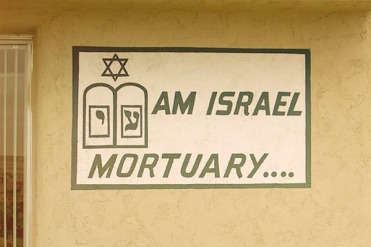 Although many do not seem to grasp this, religion and a connection to Divinity are two different things – you can have one without the other. To understand this, first we will look at religion, and then we will look at a connection with Divinity, all of this from the perspective of the magician and magic.
Although many do not seem to grasp this, religion and a connection to Divinity are two different things – you can have one without the other. To understand this, first we will look at religion, and then we will look at a connection with Divinity, all of this from the perspective of the magician and magic.
Religion is a man-made structure: it is a set of rules, a hierarchy of power, a constructed mythology, and an interface that acts as a Divine filter. Its purpose is to harmonize the cultural concepts, expressions and adherence to the relationship between human society and god/s. A religion allows cultural norms, ethics and morals, societal structures, societal hierarchies and general cohesion to occur within a given group, and the connection to Divinity as a concept, or as a collection of deities ensures that it is not something that can easily overthrown. That in turn means stability (and usually, fancy hats). 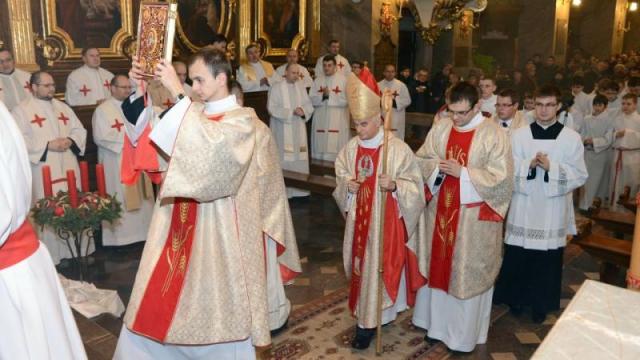
For the individual it means that the person has a set pre-prepared series of communications (prayer) and ritual patterns (mass) that the person can use so they don’t have to make one up all the time, and because of the rules and structure, they know the parameters of behaviour. That in turn gives a person the understanding that if they do X then to expect that Y will happen. It is the progression from needing the security of parental boundaries in childhood, to societal boundaries in adult hood: everyone knows what is expected of them, and what limitations are placed upon them. This becomes evident in priests who have been immersed in religion all of their lives, only to feel that they have never truly ‘felt’ God. They play to the rules, but it is the religion they worship and talk to, not Divinity.
Religion developed as a way to make things run smoothly, and also to give the individual a list of telephone numbers to reach God if they needed to (here, pray at this shrine if you want X). The priestly class in any religion (and scholar class in Islam) were/are levels where hierarchical power and control can be reached if you are ambitious enough, along with gaining cool outfits, and a group of subordinates to look down upon. And although many western magical systems drew their structure from religion and copied it dogma for dogma, it is not ultimately necessary for magic.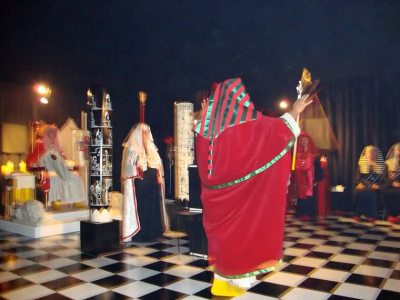 If you take away the religion, Divinity/God is still there, all around you: all you have done is take away power games, social structure, telephone numbers and cool outfits.
If you take away the religion, Divinity/God is still there, all around you: all you have done is take away power games, social structure, telephone numbers and cool outfits.
And it is that shopping list that many magicians object to – rejecting religion does not make you an atheist unless you really are an atheist. Rejecting religion means you are rejecting a man-made structure that has no real place on the path of the individual mystical magician, unless they wish it to be there. Connection with and communion with Divinity can and does happen quite well without all of the trappings that the ego so lusts after.
So where does this leave the magician (who is not an atheist)?
Magic is about two things: learning about yourself in great depth, and learning about how the universe works, from an inner magical perspective, around you. Through learning about those two things, you learn how to become a player in the production instead of a passive recipient – that is essentially the difference between a magician and a non-magician: a magician is about action and intent.
When a magician is very young or immature, they stride out to use action and intent to change their own world for themselves. If they are successful, some become curious and want to know how and why that success happened. That brings them face to face with consciousness and beings that are not human like themselves.  It is a bit like coming face to face with your first elephant as it crashes out of the forest: the elephant and human look at each other – the elephant thinks… oh shit, not again….. And the human thinks…. Woah that is one big dude…what the hell is that?
It is a bit like coming face to face with your first elephant as it crashes out of the forest: the elephant and human look at each other – the elephant thinks… oh shit, not again….. And the human thinks…. Woah that is one big dude…what the hell is that?
From that connection, a slow series of steps take the magician in ever widening circles, like ripples on a pond, until they start to bump up against the power of Divinity – the power and presence of God within eve rything. But the magician does not know how to connect with that power, or even what it is. But with time, the encounters become more and more powerful and meaningful until one day, the magician realises he or she is connecting with Divinity in their own unique way, not through a religious pattern. That is when the magician flowers as a mystic and the mystic flowers as a magician. Religion does not come into it at all. Belief does not come into it at all. What does come into it is real powerful practical experience, something that they will never ever forget.
rything. But the magician does not know how to connect with that power, or even what it is. But with time, the encounters become more and more powerful and meaningful until one day, the magician realises he or she is connecting with Divinity in their own unique way, not through a religious pattern. That is when the magician flowers as a mystic and the mystic flowers as a magician. Religion does not come into it at all. Belief does not come into it at all. What does come into it is real powerful practical experience, something that they will never ever forget.
Once the magician has experienced Divinity in that unique one to one way, they begin to see fragments of what they experienced in the religious and mystical writings of others: mystics, priests, priestesses, poets, artists, hermits – it is irrelevant what religion they are, as the base line of the experience is the same. But in order to recognise it, truly recognise it in the writings of others, you have to experience it for yourself. You cannot theorize or read about it and think you ‘know’ – you don’t. Not until it is your experience that you own.
But in order to recognise it, truly recognise it in the writings of others, you have to experience it for yourself. You cannot theorize or read about it and think you ‘know’ – you don’t. Not until it is your experience that you own.
That experience comes through the slow un-peeling of the magician that comes through gradual steps into the cold waters of magic. Any type of magic, just like any religion, can bring a person to that point if the potential is within them. If that potential is not there, then no amount of studying magical systems or immersing in religion will trigger it: it is a latent ‘something’ that is already there, or it is not. It is in most people drawn to magic, if they are drawn from some strange compulsion/memory/voice/dreams to step into magic – it calls them usually in childhood and then waits for them to catch up.
Mixing deity and Divinity
A magician must have a religion, because the most important magical path is to develop a relationship with divinity and work with it. The name of that divinity is unimportant, neither is how you work with it. What is important is that you see it in a way that you can believe and follow the concepts which are defined by it. – Nick Farrell
This is the other stumbling block that magicians get into when they feel religion is a must for magic. Deity is a god, like Amun, Durga, Isis, Christ, Thor and so forth. They are not Divinity, but Divinity flows through them: they are aspects and substations of creation, all of which are expressions of Divinity. Virtually all western magicians study Kabbalah, and yet virtually every single one of them misses the point of what Kabbalah is talking about (much to the glee and sniggers of Jewish Kabbalists).
Each of the deity families have religions that act as operating systems for the humans to use to interact with them. A lay person will stay within one religion, or may at some point in their life, switch religion. Sadly, as an aside, the ones who switch tend to become the most fundamentalist in their thinking – it is new, sparkly, and everyone must listen!
For a magician, a religion is viewed specifically as an operating system that functions between the magician and Divinity, an operating system that can be worked with when necessary. It is important that magicians know how a religion works from an inner as well as outer perspective, and understands the construction, energetic expression and collective consciousness of that religion. Through that knowledge, the magician can operate from within that religion if it is necessary, and can then back out afterwards – and remember, they are backing away from the structure, the religion, not from Divinity itself. That is only possible if the magician fully understands that religions are simply constructs, and to gain that understanding, they need to be exposed to more than one religion, more than one operating system in their training. Through such exposure, and working from the inside of that system and then backing out, the magician can begin to understand the layers of complexity within construction, and apply that knowledge in their own work. But they do not have to immerse themselves in the belief of the religion.
Divinity existed before religion and will exist when humanity has ceased to be. Divinity can flow into religions, can reach out through deities and humans alike, as Divinity is the consciousness behind creation, and the consciousness that flows through all of creation. Most religions have a special designation for Divinity, above and beyond the deities of the religion: often it is expressed as ‘the unseen, or unknowable one’. 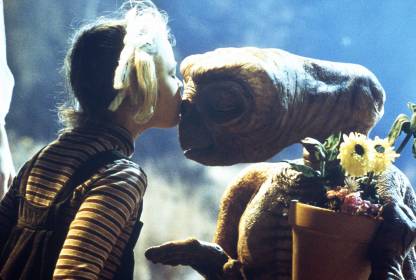 In magic, this power is present in everything we do, and in everything around us, waiting until we stumble blindly into the ‘presence’ which opens our awareness. It is a power that is neither good nor bad, rather it is simply necessary.
In magic, this power is present in everything we do, and in everything around us, waiting until we stumble blindly into the ‘presence’ which opens our awareness. It is a power that is neither good nor bad, rather it is simply necessary.
Summary
So…. All of this was a long winded way of saying, no, magic does not need religion, any more than magic needs dogma. But you cannot function in magic without tripping up over Divinity, because everything in the universe is Divinity, and by magically interacting with everything around you, you are talking to God….God not of religion, but God who is the universe, the consciousness and power of the universe that runs through everything, God as Divinity that flows into all religions, and into the tree, the cat, a rock, the stars, and yourself.
Finally, if you are not bored yet, here is something I just wanted to specifically address from Peregrin’s blog.
<<<<<Nick’s take on this seems to be: “What each magician does is that they reform their religion until it fits better with the image of god they are working with.” Again, this makes sense from a magical approach, but is contrary to the religious.>>>>> Peregrin Wildoak
Just a technical point to make here, as there are a few times that Peregrin has stated something about Christianity which is not strictly true, and is more of a dogmatic belief than an actual observation. (oh and Peregrin, Orthodox, Anglican, Catholic and Protestant are VERY different on all levels) In the above quote, Peregrin takes Nick to task regarding the plasticity of religious approach, and states that such plasticity is contrary to a religious approach. Actually it is not. It is that practicality and flexibility of approach that created Christianity in the first place.
Let us not forget that the early form of the Christian religion was as a Jewish sect, not as a new religion. However when Paul and Barnabas were running around the near east trying to drum up new takers for their sect, most Jews told them to piss off – they were not interested. 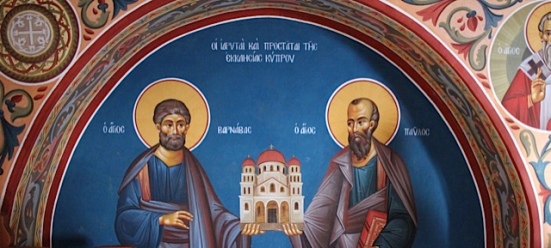 The pair went to Cyprus, and Barnabas used his magical skills to try and impress the natives – he got into a magical pissing context with Elymas bar Jesus (wise son of Jesus), who was the Jewish magician in the employ of the Roman Proconsul on Cyprus, Sergius Paulus. (Acts 13)
The pair went to Cyprus, and Barnabas used his magical skills to try and impress the natives – he got into a magical pissing context with Elymas bar Jesus (wise son of Jesus), who was the Jewish magician in the employ of the Roman Proconsul on Cyprus, Sergius Paulus. (Acts 13)
The local Jews on Cyprus were not impressed, as they had seen it all before: Cyprus was a hotbed of Jewish and Egyptian magic (from the Ptolemaic Imperial Cult) , and at the time it was fashionable for high ranking Roman officials to have a ‘Cyprian’ in their employ as a magician advisor (the Judean Proconsul also had one). As an aside, this is likely where the use of ‘Cyprian’ as a name for a grimoire or type of magic came from, carried into Europe by Cyprian magicians following their Roman employers. Anyway, digression.
The Jews ignored Barnabas and Paul, but the Romans were dead impressed. This led to a change in strategy for Paul – what had before been a concerted effort to get on board all Jews (and only Jews) to the new sect, as it was closed to Gentiles, now turned to becoming a sect that was aimed specifically and exclusively at Gentiles, while triggering hostility towards Jews. That was a huge turn around for the early belief structure, and is the earliest example of a shift in foundational policy of the newly born religion. A change which was fashioned in order to make it all fit and work better.
Since that time, there have been so many changes in the religion, its presentation, expression and structure, that today’s Christianity has little bearing on the original concept. And each change has been to accommodate a personal wish to control, to change or to manipulate the religious structure to suit their own agenda. Occasionally the change has been about evolution, but in those cases the positive changes often fell quickly by the wayside.
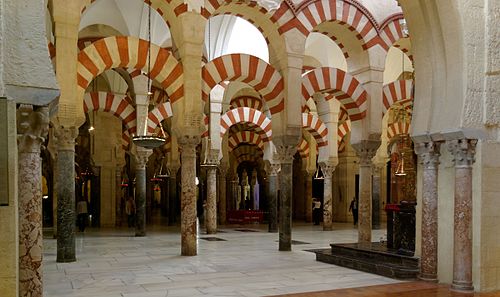
Cathedral Mosque of Cordoba built on Pagan site
This is why we have so many different factions of Christianity, different belief approaches, and so forth. What Nick describes and Peregrin denies, is a simple plain dynamic of humanity – we adhere with something until it no longer suits us, then we change it. That is how religions, cultures and stru ctures shift and change.
ctures shift and change.
So thank you to Nick and to Peregrin for triggering the debate….. if nothing else it keeps me out of trouble.
This really sets out the subject matter well. as someone also raised I’m a religious structure and a magician this is relatable and provides a useful approach.
LikeLiked by 2 people
“…because everything in the universe is Divinity, and by magically interacting with everything around you, you are talking to God…”. Beautiful! Thank you Josephine! How powerful and intimate to see God as having every face and every form. This post clarifies a lot for me and inspires me to see that Divinity in everything and everyone … and to learn magic as a way to speak to, connect with, and constantly discover the ever unknowable yet very close Divine Power! Excellent post and very interesting to see how religions form out of personal agendas and can still hold magic somewhere inside them… at least for a while. Thanks for the history lesson of Christianity as well… it makes a lot more sense now about the origins of how a once Jewish sect became a gentile imperial cult. Please keep writing 🙂
LikeLiked by 1 person
From Nick: “A magician without a religion is like a Roman Catholic priest who spends his spare time fiddling with kids” Are you effing kidding me? Is he for real? That is got to be one of the most laughable and ridiculous statements I’ve ever heard from the magical community! I just don’t even where to start with that one!
LikeLike
Yes, I don’t think that was one of his better moments. I think I understand what he was trying to say, but the use of language ran away with him.
LikeLike
That is probably because you are not actually thinking about what I am saying and saw what you think was there rather than what was written . The metaphor is absolutely correct. A kiddie fiddling roman catholic priest might look like a Christian, might be seen as a Christian by everyone in their community, but they are quite obviously not. So an atheist magician might dress up, might read lots of books, might do rituals but they have missed the essential point about what being a magician is all about.
LikeLike
Probably Josephine 🙂 The I wanted to go for the most powerful symbol to hammer it home. There is rather a lot of damage done by those who steal the trappings of religion (and magic) to cover for something else.
LikeLiked by 1 person
Beautifully written Josephine. Very thought provoking
I personally don’t think much about religion as I was not raised with very much of it at all. (except the guilt leftover from my mother’s being raised Catholic) So when I was young I learned that magic was about connecting to the energy of the universe/divine. My best friend’s mother (who recently passed) was into Wicca and then from there I tried many mystic flavors, Sufism (Whirling dervish) Kabbala, and the Priest/Priestess work as well. I am very interested in the history of the religions, but debating the religious details was always brain numbing to me, whether it was at a mosque and some guy was debating with the Imam about praying five times a day (the Sufis would say “Pray every moment,” i.e. maintain connection with the divine at all times) or the one or two times a year we were dragged to church to listen to someone drone on about stuff I didn’t care about. My mom decided I wasn’t to go to church any more and had to go to the kid’s religious classes because my head was flipping from left to right the whole time. I was comparing the layouts and colors of the stained glass windows on the right and left sides of the church.
In these times with computers and devices, fast paced deadlines and impossible code, I often forget those connections, but with the current crisis realities all around I am being reminded to return to those roots and not to forget again. Your article is a part of that waking up again. Thank you!
LikeLiked by 1 person
<<>>>
Hahah, me too… I used to compare blocks of stone to see if they matched up, and how the light inched along the statue of the Virgin – I would count how long it took from one shoulder to another.
I am glad it has triggered something for you, as I know it has already pissed off one section of magicians (the religious ones).
xxxxxx
LikeLiked by 1 person
I had a spirit tell me once that everything is sacred. Not because God made it, but because everything is made of God. What you wrote reminded me of it. Loved this. Thanks for sharing.
LikeLiked by 1 person
That’s beautiful Janet!!
LikeLike
My original post was to counter to a basic thought in modern magic which says “you don’t need to believe in something more than yourself and can be an atheist and a magician.” I expected the Spanish inquisition from those who think all magic is psychological and you do not need gods.
I grew up in a religious environment with an idea that we were going to do something with it. I spent my summers at Christian bible study camps and wanted to be a missionary in China (when my mates wanted to be airline pilots). I did serious bible study in my spare time. Ironically it was that study which led me into occultism.
The issue here might one of definition. My blog was written for an audience of generation which has not grown up with any belief and is being told “you don’t need it to be a magician.”
I do not define religion specifically as Christian, Judiasm etc, but more simply as a belief in God or Gods (dictionary definition). That belief, whether it comes from established practice or not must create a set of behaviour or guidance. This was one of the main things that stuffed up protestant Christianity for me. If you believe in a God, what do you do next? Despite my best efforts, I could not accept that God wanted me to be a right-wing nut-job ball of hate. There were rules in my Christianity but not those. It was more the concept of the “laws which were written on the tablets of your heart,” which comes from a religious belief.
Using my defintion, Religion is not necessarily anything man made, or which requires a hat. It is someone looking at the universe and realising that there is a God (Divinity) behind the lot.
The point you make about the mystic and the magician is exactly what I am driving at, none of which would be possible if the magician did not believe in a God. The magician aims to become a fusion between God and man all of which is impossible if you do not accept the concept of a god and think it is all your “higher self” or a similar psychological state.
I agree completely with what you are saying about Divinity which was the point I was driving at and again saying “look you atheist chaos magicians… this is what you are missing.
LikeLiked by 1 person
<<<“you don’t need to believe in something more than yourself and can be an atheist and a magician.” >>>>
Your post makes a lot more sense now, knowing who/what you were addressing. I think it is possible to be a magician and be an atheist, but it isn’t a path, in my opinion, that can be particularly fruitful in the long term, for all sorts of reasons.
I think with your post, my response was more a matter of semantics, whereas I have been finding Peregrin leaning more and more towards an attitude of ‘Christianity is the way’, even while trying to be inclusive – I felt that needed addressing whether he rally meant that or not, as it is becoming more and more of an issue of late.
Nick, what do you think of the value (or not) of the Christian structure within the GD – it was there originally because that is what everyone did… but now? I understand you have been moving your path away from that a wee bit, how do you see the GD children lodges adjusting to the shifts?
And thanks for the debate…sometimes we clash head on, and sometimes you give me a great deal to think about.
JX
LikeLike
I am seeing an adapted outer order extremely useful in training people. The outer order always was less Christian than say the 5=6, but I did tweak some of the rituals to give it a more “pagan” edge. The 5=6 has elements of an Osirian approach to Rosicrucianism which can be emphasised to unlock a more inclusive religious approach than even Mathers did not intend. The practices and regular work in the outer order (at a sub lunar level) does involve weekly rituals to work with the Gods of the Grades. What I found odd was for many students this was the first time that they were having “religious” experiences from occult work and I twigged that it was the first time that they were encountering “religion”
LikeLike
What an insightful & wonderful debate ~ really thought provoking! Thank you!
LikeLiked by 2 people
Hi Josephine, thanks for this lovely post 🙂
I do not disagree with the bulk of what you write. Yes, “Divinity existed before religion and will exist when humanity has ceased to be”, yes, “religion itself is of no importance to a magician unless they feel it is right for them, and is what they need at that time.” How can something be right for someone unless their interiorly know it to be so, magician or not? To practice any religion without it being right and freely chosen would be simply silly. Free will, free choice is the essence of Christian engagement. Even my most conservative Evangelical Christian priest friends would agree with that.
Most of the Christian priests I know would probably agree with most of what you write. Religion is a language to enable engagement with mystery. It is useless in and by itself. This is the same with any tradition of magical tradition as I have blogged on many times. So we agree on virtually every salient point I think. From my side there is no ‘debate’ and no ‘sharp intake of breath’. 🙂 You must hang with very different GD bods than the folk I know 🙂
Where you refer to my writing and myself, it is however a bit strange. I am sure you do not want to be taken for one of those writers who simply says things without explanation or backing it up. So, taking one of the last things first, you write:
“(oh and Peregrin, Orthodox, Anglican, Catholic and Protestant are VERY different on all levels)”
I am unsure what you mean by this. I have never suggested otherwise. I have only pointed out areas where certain traditions of Christianity have a common view. Pointing out commonality is not a comment on the rest of the traditions. Please quote where you think I do otherwise.
You also write “Both magicians did not grow up in particularly religious households, nor did they study religion in depth”.
While I have publically referred to my lack of religious upbringing (despite my best efforts), the simple fact is you do not know if I have studied religion in depth or not. This is a bald assumption and nothing more. Very unlike you 🙂
You also write: “Peregrin has stated something about Christianity which is not strictly true, and is more of a dogmatic belief than an actual observation.”
Please point out the exact times I say something ‘not strictly true’ about Christianity. Seriously, I would like to know, as I am learning here. Most, if not all of my ‘Christian’ posts have been read by priests, orthodox and heterodox and I have not received this feedback.
Also, dogma IS part and parcel of the various Christian religions, if not Christian magic. As Alan Watts writes: “dogma is always that which constitutes the authentic form of the myth the rest being individual opinion”. Christian esotericism never opposes, breaks or damages dogma but reinterprets and expands it in the light of interior experience.
You also write: “In the above quote, Peregrin takes Nick to task regarding the plasticity of religious approach, and states that such plasticity is contrary to a religious approach. Actually it is not. It is that practicality and flexibility of approach that created Christianity in the first place.”
However, the quote you give ignores the context and explanation I give next:
“One of the key points of religion is conscious and willed surrender of one’s personal concerns, personal images, and personal aesthetics into something greater and more sustaining. Religion is definitely not concerned with reformation from each individual but the reformation of each individual.”
Your summary of Christian religious reformation is great. But it is not the context here. Yes, all religions change, of course. However, the context here is referring to an individual practicing religion today not reforming a religion. I maintain that religions are concerned with more with giving tools for the reformation of individuals (in the image and likeness of God to use Christian terms) not having those individuals reform the religion itself. Pretty sure most priests would agree with me on this. 🙂 And as clearly shown by the sheer evidence of folk doing it, it is very possible for magicians to have a plasticity of approach and remain within the bounds of Christian orthodoxy.
Thanks 🙂
LikeLike
Hi Peregrin, You are right, I should have qualified statements more, but as with anything to do with Christianity, it is never simple and a sentence is not enough to display the complexities. So here we go…. This is not a full expanse, as it would just be way too long, but it sort of covers the main parts of your communications that were bothering me.
Your summary of Christian religious reformation is great. But it is not the context here. Yes, all religions change, of course. However, the context here is referring to an individual practicing religion today not reforming a religion. I maintain that religions are concerned with more with giving tools for the reformation of individuals (in the image and likeness of God to use Christian terms) not having those individuals reform the religion itself. ¬– Peregrin
I am also pretty sure most priests would agree with you there, but that is what I mean about viewing a religion from the inside and not stepping back to view it from the outside. The publicity of Christianity tells us that reform in the Church happened for the good of the religion/the people, when in fact a lot of the time it was because of a personal opinion, need, want, or manipulation. And if you are indeed well read in theology and theological history, you should know that.
When a magician shifts and changes the approach in the relationship between him/herself and God and stays within a broadly Christian paradigm, that is how the religion changes. It is no different from an apostle, saint, council, or bishop causing changes to the religion – the only difference is when the magician does not then spread that change to others, but keeps it silently to themselves. That is truly the only difference.
Most changes were done in the church to suit the agenda of one person, and then was dressed with reasoning to make it look more than what it was – that is why I gave the example of Paul and Barnabas: the change from Jewish Sect to Gentile religion was a purely practical one that allowed Paul and the others to maintain their position of power and control. If it was truly only about Christ and spreading the word, they would have done what Christ did, speak to those who would listen and not compromise one bit. The Jews didn’t listen, so the message switched to appeal to a Gentile audience (the shift in the liturgy of the Eucharist is a good example, which I set out below).
If you step away from the dogmatic thinking and the hero worship of apostles and saints, and look from the outside in, with critical thinking, you see the whole thing from a very different angle. You see all the human frailty, the power games, the need for status, pedestals and control, and the willingness to change the goalposts to suit themselves. The historical list of people and changes is massive, but probably Henry VIII is the most famous.
For the ‘flock’ this is of no real consequence, but for the magician it is very much so. It is important from the early training of a magician that they realise and spot the trappings and dogma of power and control, that they recognise them, and then sidestep them, as they have no real place in magic nor indeed in a relationship with Divinity. They are instead power structures, like empires, kingships and governments – they are nothing to do with God and everything to do with looking good, having a big hat, and being in control.
This is why a lot of modern Christianity, even with its fragments of the mysteries still clinging on in there, has very little to do with the simple teacher Jesus – it has become a behemoth of epic proportions, where the worship is essentially to the system, the structure, and the power.
When you are immersed within it, you do not see this, but stepping back, which is one of the first jobs of a magician in training, you start to see the whole outer construct and inner egregore which is essentially a core structure of power and control. Within that vast structure, there are little pockets of beautiful, clear union between the person/s and the Divine, but those are small corners indeed.
So for example, for a magician who is also a Christian, the first phase of training would be to step back and look dispassionately at the whole thing and ask, what it is truly about? That then leads the magician on a long and often convoluted journey where they start with a place within a religious dogma, and end up face to face with God, and the religion was shed like an old coat somewhere along the road. Why: because dogma and magic do not ultimately mix, rather they contradict each other.
That is much harder to achieve or understand if the magical training and path is also heavily interwoven with the religion, as the Golden Dawn is. And yet the GD bends and flexes to suit itself also, with the inclusion of god forms, Egyptian names, deities, hats (it’s always the hats), sprinklings of Kabbalah etc. The need for trappings, status and control, the pattern of the dogmatic religion, is transferred into the GD and upheld. Of course that was to be expected given when it was formed, but jeez guys, ever heard of evolution?
So before this turns into an epic, let me just try and answer your concerns, but please understand this is a massive and complex subject, and is one that is not properly addressed in magic, and that is, the question of the relevance of religion (not the same as Divinity/relationship with) within magic, and what is religion anyway?
My critique of you was probably not as focused as it should have been, and it is not a put down at all, rather just pointing out things, particularly semantics, where it can be read with misunderstanding, and thus lessen the message. At worst it can perpetuate something which is becoming an increasing problem – words misused end up distorting the meaning, and thus the education of the reader. It is something we are all guilt of to a greater or lesser degree, particularly in the era of social media, but when we are addressing topics that are important to people, then it is critical to get it right. And I think this is one of the jobs of magical teachers in the public area, is to help clarify something through friendly challenge.
My first nitpick, which while small, is important for students and their understanding of the complexity of the Mysteries and Christianity. It is the simple use of the word Orthodox. When you are using it, I think you are meaning ‘traditional’. In discussions around Christianity, the use of the word Orthodox in general tends to mean the Orthodox branch of Christianity, not a ‘traditional’ something. If the word is changed to orthodoxy, then it is often applied in a wider way. But I and others had trouble understanding whether or not you were talking about ‘tradition’ or the Orthodox faith.
<<<>>>>>
When it comes to the Eucharist, there are different approaches in various arms of Christianity. This is a long winded response, as it is necessary – a simple sentence would not be backed up with ref, and it also illustrates the complexity behind the dogma, and also the complexity that presents when we bandy about ‘certainties’ in short sentences.
This answer also illustrates how the dogma has changed drastically over centuries and across different factions, and that does directly relate back to the individual changing the religion to suit their own agenda or relationship with the Divine, which was something you feel has not/does not/should not happen. But it did and does.
In terms of the Eucharist itself it started out as a simple thanksgiving, nothing more: the first version appeared in the Didache (consensus puts it anywhere between 50AD and 100AD), a very early formation of dogma known as the Teachings of the Twelve Apostles. This first version was a version taken from some of the Birkat hamazon, the Jewish thanksgiving after a meal. You can read the whole thing here http://www.earlychristianwritings.com/didache.html chapter nine.
So you can see it was a thanksgiving, nothing more. The deeper more magical/mystical version of the Eucharist came in also in the first century of Christianity, and it appeared in Antioch, which was the ‘place to be’ if you were involved in the emerging new religion. The first idea of the transubstantiation appears in a letter by St Ignatius of Antioch to the Romans in which he says: I desire the bread of God, which is the flesh of Jesus Christ. This very likely is connected to the understanding of transubstantiation via the Osirian bread ritual that would still have been in public knowledge in Thebes, a key place in the formation of early Christian doctrine. It would appeal directly to the Pagan community in Upper Egypt, thus helping practically with the formation of the Gentile religion.
Fifty years later, Justin Martyr, in his ‘Dialogue with Trypho’ states: Now it is evident, that in this prophecy to the bread which our Christ gave us to eat, in remembrance of His being made flesh for the sake of His believers, for whom also He suffered; and to the cup which He gave us to drink, in remembrance of His own blood, with giving of thanks.
So in just one hundred years we see subtle evidence of three distinct approaches to the Eucharist: thanksgiving, sacramental union, and Transubstantiation. The various branches of Christianity to day have one, two or all three of these elements in their sacrament.
In terms of the priest celebrating the Eucharist, your comment “the Eucharist cannot be performed by the priest alone: it is a corporate action, not a solo venture”, depends heavily on what type of Christian you are talking about. If it is a Eucharist that is based in sacramental union(consubstantiation) then yes, it is gathering with the presence of Christ in giving thanks.
With transubstantiation in the Catholic Church, it is generally correct but not always. There are various reasons to necessitate celebrating the mystery alone, and this is covered in the Catholic Canon 904:Remembering always that in the mystery of the Eucharistic sacrifice the work of redemption is exercised continually, priests are to celebrate frequently; indeed, daily celebration is recommended earnestly since, even if the faithful cannot be present, it is the act of Christ and the Church in which priests fulfill their principal function.
Usually at least one other person is expected to be there for the transubstantiation ceremony, but it is not the communal nature that makes it sacred, it is the act itself which gives it power. It is then distributed to the faithful, but that distribution does not define the sacred act itself. This has its roots in a ritual act that predates Christianity, and its inclusion in the structure of the early church is part and parcel of the newly forming sect moving away from its Jewish roots and becoming more acceptable to the Pagan/Gentile community.
The Trinity
We can of course relate this to the Trinity but ever mindful that the Trinity is three separate but mutually interdependent and dynamic Persons, not three faces of a single God, – Peregrin
Glad you sorted that mystery, as that has had theologians scratching their heads for two thousand years!! Here is a quote from the Vatican advisory notes on Catechism:
233 Christians are baptized in the name of the Father and of the Son and of the Holy Spirit: not in their names, for there is only one God, the almighty Father, his only Son and the Holy Spirit: the Most Holy Trinity
http://www.vatican.va/archive/ccc_css/archive/catechism/p1s2c1p2.htm
If you read the notes, you will see that some of the notes are contradictory, and you can see how theologians over time have twisted themselves into pretzels to try and work it out. As a magician, and a leader in a lodge, the job is not to reduce down to dogma, to simple bites, nor to settle with dogmatic acceptance, but to lift up beyond dogma, to life up the edges of the carpets and look at the floor underneath. Only then can you really start to understand the complexity of the connections between the ancient world, Christianity, and the magical mysteries. And that careful observation should in no way damage the relationship with God – however it may raise ones eyebrows at the integrity of the religion/church.
On the magical front, if we look at Nick’s blog and pretty much any modern magical book we will see the transpersonal and the personal are included and explored very well. Magicians are concerned about their lives and material expression (personal) and their connection with the transpersonal divinity. However bugger all is expressed concerning the impersonal, the non-personal, where we give out to others without thought or concern or expectation. The triangle is thus broken and incomplete. – Peregrin
This is sadly yet another sweeping reductionist statement that is used to plug the more religious stream of magic that you are seeking, consciously or unconsciously, to propagate. I really think you do not see how fundamentalist you have become in recent years in your fervor for Christianity and magic. Look back over the blog posts – while they are intelligent, astute and in depth, there is also an element of Christian drum banging that is creeping in. Decide if it is still a magical blog, or a religious one – that may stop a lot of confusion.
Your comment about modern magical writings does a great disservice to a lot of magical work that is current and out in the world. There is a whole stream of magical work and training that has service as one of its central tenets, along with relationships with Divinity in various ways. Yes there are a lot of books on results magic flying around, but there are also a lot of other works that are not.
It could be equally said that the first tenet of all magical mysteries, know thyself, is impossible in a magical stream that is based around religious dogma and has all the trappings of self gratifying power pedestals as its main attraction. So tread carefully.
So to wrap up…..
Nick’s take on this seems to be: “What each magician does is that they reform their religion until it fits better with the image of god they are working with.” Again, this makes sense from a magical approach, but is contrary to the religious. – Peregrin
I find this rather startling as a comment seeing as you quite happily co-opt from other religions and mix something around completely out of context and then use it to further your own religious point within the magical setting (and bearing in mind this whole debate is about religion and magic, not just religion). Your use of the Shin in your blog, and using it to demonstrate the Trinity, is breathtaking example of such. I could take it apart using Jewish Kabbalah, but that would add yet another two thousand words to this, which is already too long. The silent Shin that you used has a variety of meanings and sub meanings to it within the mystical arm of the Jewish faith.
I presume you used it, with the Trinity additions, because you or someone else made the connection between El Shaddai, and Shin. But your use is totally out of context, and is an example of expertise by Wiki. I am sure many Christian Kabbalists would justify it, of course they would, but it does not take away from the fact that essentially, co opting and making shit up to enhance your religious pattern, is in your eyes acceptable for Christians, but not anyone else, and particularly not magicians. Harsh? Yes, but fair? Yes also.
LikeLiked by 1 person